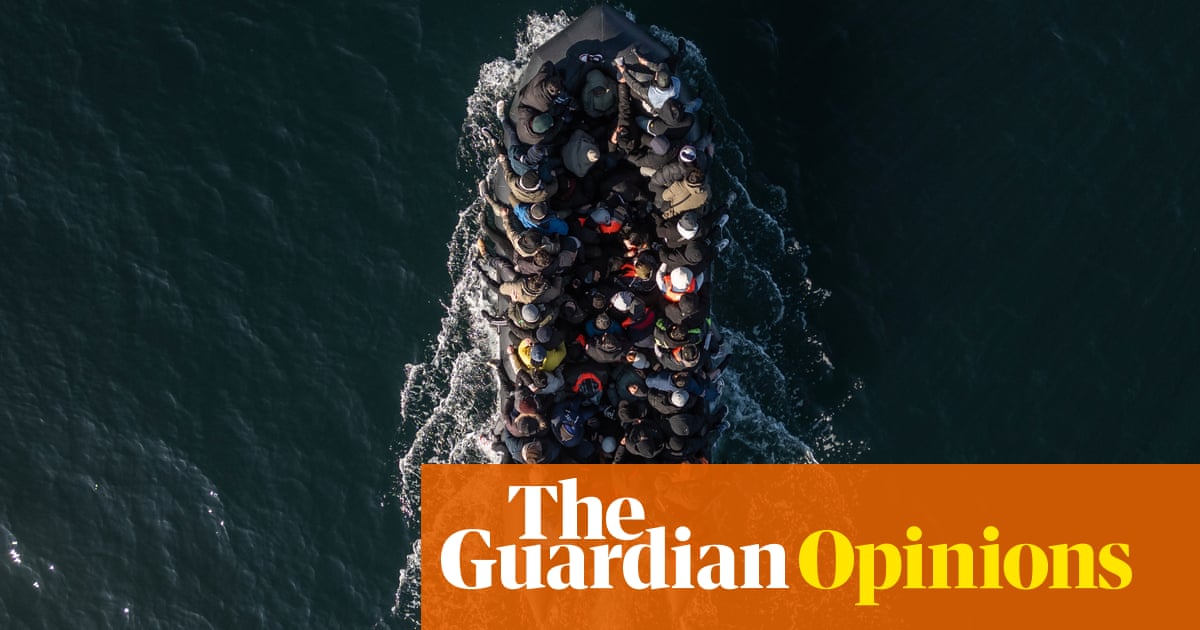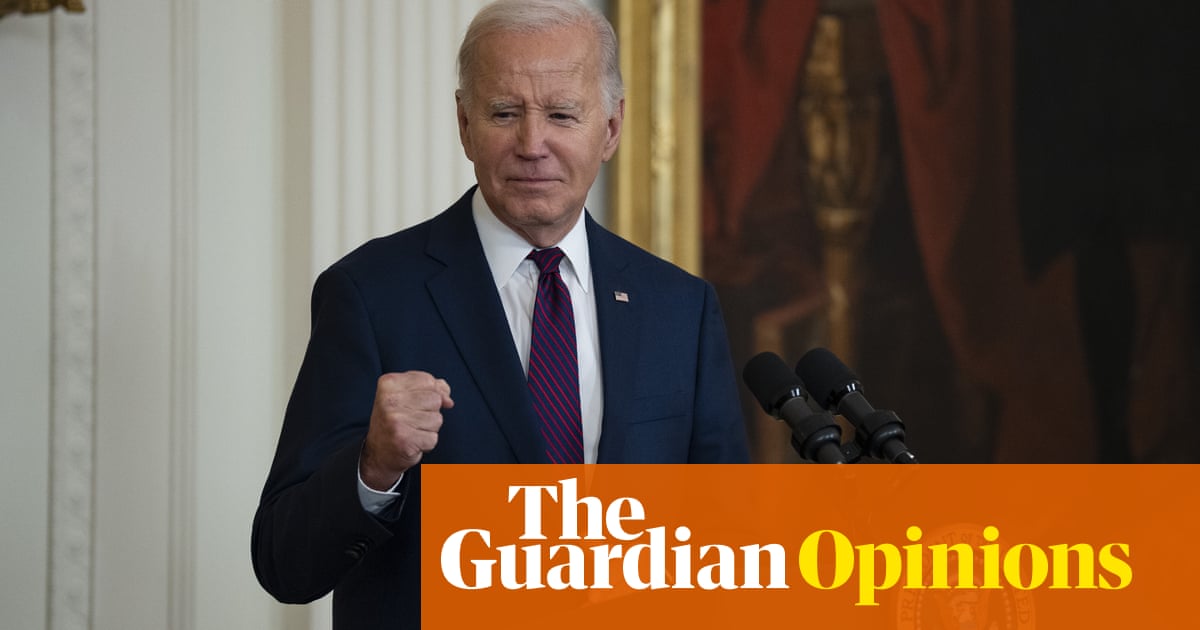
“Look, if people don’t like the mug, they don’t have to get the mug,” Ed Miliband said, exasperated. We were on a train to Manchester for a televised leaders’ debate, a month before polling day in 2015. The mug in question bore the slogan “controls on immigration”. It was one of a set of five, each branded with a campaign pledge. “Other mugs are available,” the then Labour leader reminded me.
But the border control one had provoked paroxysms of indignation from the left and sneering disbelief from the right. Miliband’s frustration was palpable. His advisers spelled out the logic: the slogan was uncontroversial; the alternative to controlling immigration was not controlling immigration, and no one ever won an election promising that. On paper, it was a rational campaign priority.
Except it wasn’t on paper, it was on a mug, and no one was buying it.
Not being trusted to manage the country’s borders was just one of many reasons why Miliband lost that election. Scraping some public confidence on that measure is not the only reason Keir Starmer is likely to become prime minister this year. But, like winning elections, it is a feat rarely achieved by Labour leaders.
A lot of things have happened in the immigration debate since 2015, Brexit being the big one. Ending the treaty obligation to allow European workers free access to Britain’s labour market released a lever of migration policy that had not previously been available. Whether that was worth the cost in surrendered access to the single market and the loss of British citizens’ right to work on the continent is a different question.
The salience of migration in political debate, measured as a position in the table of issues voters cite as their top concerns, duly dropped. At the time of the referendum, about half of voters named immigration as a high-priority issue. That had fallen to less than one in five by the end of 2019, before Brexit was even enacted in law. It started ticking up again around the middle of 2022, but has not scaled the old peaks.
Meanwhile, people kept coming. After a sudden dip caused by pandemic border closures, net migration has grown steeply since 2020. Last year, it was 672,000. The main change, post-Brexit, is that more people are coming from non-EU countries and on visas issued by a Conservative government that wants their labour in the NHS, in social care and other sectors. It is a matter of sovereign policy choice, albeit one Rishi Sunak doesn’t brag about.
He talks instead about stopping the boats that carry a comparatively small number of people – 29,437 last year – seeking asylum. Now that Rwanda has been declared safe by an act of parliament, and UK courts are forbidden from judging it otherwise, a symbolic sample of those boat passengers can be spirited away to Kigali.
Of the vast majority who will still be in Britain, many are debarred from naturalisation. Last year’s Illegal Migration Act (in defiance of international protocols for humane treatment of refugees) makes “irregular” arrival on British shores an automatic reason to refuse sanctuary. There are no regular channels.
Sunak will be satisfied if he can get a flight off the tarmac by July. Maybe a few dozen deportees will be off British soil by polling day. Tens of thousands more will be trapped in legal limbo, eligible only for indefinite detention in Britain under a system designed chiefly to telegraph toughness in an election campaign. Then the whole portfolio becomes Starmer’s problem.
Opinion polls show Labour is trusted more than the Tories on immigration, but not by much. Partly that is down to Brexit. Pro-Europeans hate Starmer’s hard line against free movement but it neatly shuts down the charge that Labour is anti-border control. No mug required.
Mostly the polls express broad-spectrum contempt for the Tories. A really terrible government makes it likelier the opposition would handle everything better. Labour can attack the roiling Rwandan mess on grounds of cost and competence without dwelling too much on the alternative this side of an election.
Then it gets tricky. The boats will still come. Net migration will stay high as long as there is a need for key workers and sustained economic growth. Tories will bang the migration drum incessantly, either in congress or in competition with Nigel Farage. Media cheerleaders will take up the beat.
Pretty much any Labour response to that pressure will divide leftwing opinion. If the message is even slightly calibrated to conservative tastes, it is liable to be denounced somewhere as pandering to the far right. And nuance doesn’t come easily to the Home Office.
Any government that is serious about managing movement across national borders has to discriminate in matters of who gets in and on what terms. The instinct of recoil from those choices, even when it is Labour ministers making them – especially when it is Labour ministers making them – runs deep in the party.
But the imperatives that have made Starmer hypersolicitous to the opinions of former Brexit supporters will not vanish the day after victory. They will be baked into the governing agenda as a requirement to sustain the loyalty of voters in recaptured marginal seats. The restored “red wall” will want reinforcing.
That doesn’t have to require polarising postures around immigration. Sunak has demonstrated the futility of a plan that prioritises slogans and performance over practical implementation. The Rwanda scheme was never even his idea in the first place. Hitching his credibility to something he knows can’t work combines weakness with inauthenticity. It would be cheaper to issue every voter with a “stop the boats” mug.
For Starmer, there is an opportunity here beyond the short-term electoral dividend. Attitudes to immigration are shaded more subtly than public debate generally recognises. Majorities can be found for the view that too many people are coming in, but also that the country benefits from the influx. Nativist dread of indigenous culture being swamped by aliens may have tipped the scales in favour of Brexit in some places, but it is not the mainstream view.
The bigger engine of anxiety and prejudice is a feeling of chaotic competition for public resources – housing, GP appointments, benefits. It is the suspicion that someone less entitled is jumping the queue. A stagnant economy with decaying services distils that resentment. It festers in pools that irrigate populism and xenophobia.
A government that made tangible progress restoring a sense of order and fairness in the public realm would not satisfy the anti-immigrant hardcore, but it wouldn’t have to. A period of sustained competence – just making the systems work – would drain so much poison out of the debate.
You don’t meet many people who are sure Starmer can pull that off. A knack for charismatic storytelling, narrating a national journey to keep a disparate voter coalition on board, would help. But evangelism isn’t his thing. He is more of a dogged problem-solver.
And yet, in that respect, the Labour leader and the British public might turn out to be a surprisingly good match. In a tired, angry country that is tired of being angry, where all the gimmicks and slogans are spent, there is a clear vacancy for a prime minister who just does the job.
Rafael Behr is a Guardian columnist












